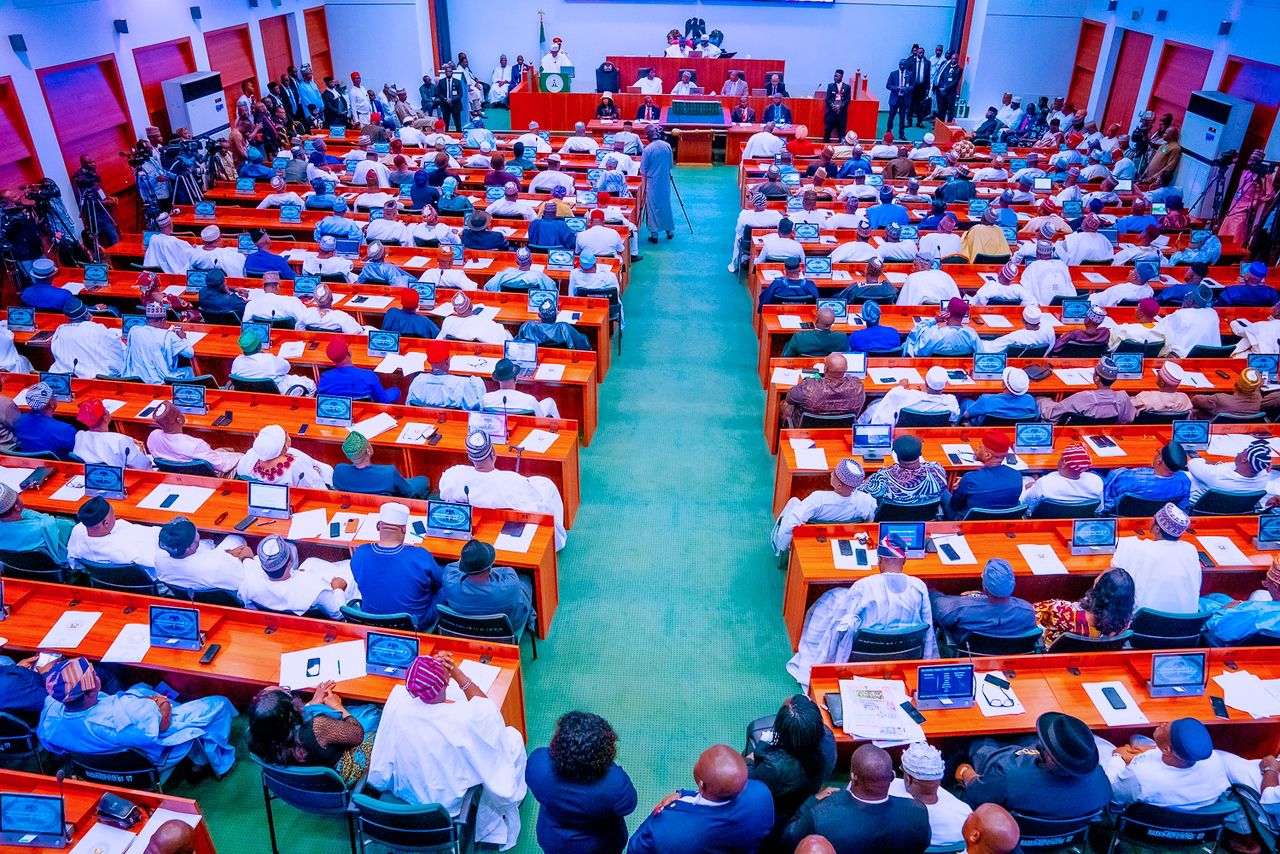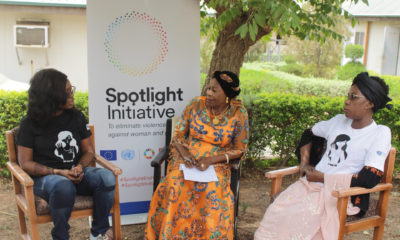News
Nigerians React as Senate Advances Bill to Repeal 2015 VAPP Act

A bill to repeal the Violence Against Persons (Prohibition) Act (VAPP Act), a law designed to curb gender-based violence in Nigeria, has advanced to the second reading in the Senate. The bill has been referred to the Senate Committee on Judiciary, Human Rights, and Legal Matters, which is expected to report back within six weeks.
Senator Jibrin Isah of the All Progressives Congress (APC), representing Kogi East, sponsored the bill, which was initially proposed in 2022. He argues that repealing the current law will allow for amendments to address its perceived flaws, as it is not comprehensive enough in its present form.
“Going through the provisions of the Act, it is obvious that it is plagued by substantial and drafting challenges. This underscores the necessity for a holistic reform of the Act to bring the provisions in line with the realities of societal change and drafting standards to effective dispensation of justice,” the senator stated.
Some of his concerns highlighted in the Act:
- Gender Bias: Originally focused on protecting women, leading to perceived gender bias despite later revisions to include gender-neutral language.
- Drafting Issues: The Act has significant drafting challenges, making it difficult to align with modern legal standards and societal changes.
- Inadequate Punishments: The penalties prescribed, including fines and imprisonment, are seen as too lenient and fail to deter offenders effectively.
- Rape Definition: The definition of rape in the Act lacks clarity, particularly regarding consent and its manipulation through fraud or undue influence.
- Victim Compensation: The Act is criticized for its focus on penal measures, with inadequate provisions for compensating victims of violence.
- Jurisdictional and Terminology Confusion: Issues like ambiguous jurisdictional language and the use of outdated or derogatory terms create potential legal complications.
- Outdated References: The Act includes outdated references to repealed legislation, reflecting a lack of currentness in the document.
With this repeal, Jibrin Isah seeks to introduce the Violence Against Persons (Prohibition) Bill, 2024, aimed at eliminating violence in both private and public life, prohibiting all forms of violence against persons, and providing maximum protection and effective remedies for victims while ensuring the punishment of offenders.
The VAPP Act 2015
Before leaving office in 2015, former President, Goodluck Jonathan signed the VAPP Act into law. The Act was enacted to prohibit all forms of violence against persons in private and public life, providing maximum protection for victims and ensuring offenders are punished.
The bill was originally passed in 2013 and became law on May 28, 2015. However, as of March 2022, Partners West Africa Nigeria reported that only 19 out of Nigeria’s 36 states, along with the Federal Capital Territory, had domesticated the VAPP Act, and only five state Houses of Assembly had fully passed the legislation.
Key Provisions of the VAPP Act 2015:
- Harmful Traditional Practices: Criminalises practices that violate the rights of women, girls, or any person, including harmful widowhood practices, denial of inheritance rights, female genital mutilation (FGM), female circumcision, and forced marriage.
- Other Forms of Violence: The Act bans various forms of violence, including physical injury, placing someone in fear of injury, forced conduct or sexual acts, sexual harassment, sexual exploitation, forced eviction, emotional, verbal, and psychological abuse, abandonment, and attacks with chemical or biological substances.
Senator Jibrin Isah’s bill now only requires one more reading before it is put to a vote, raising concerns among Nigerians who believe repealing the VAPP Act would undermine the progress made in human rights protections. Many argue that an amendment, rather than a full repeal, would be a more effective approach.
What Nigerians are saying about the bill:
The VAPP Act has been one of the few good things about the Nigerian state. It protects children from violence and abuse. Repealing it would be taking several giant steps backwards in our journey in building a fair and just society #SaveTheVAPPA #StopRepeal
— Ọmọlọlá (@lolaloveandart) August 22, 2024
Just to say a repeal of the VAPP act is very insensitive giving the amount of time that it took for it to get enacted. An amendment is a saner option. A repeal brings the act to an end.
— Wannabe Political Saviour (@thekintann) August 21, 2024
VAPP act is the main act that actually recognizes that men can be rap*d and abused too. I really wonder what goes on in our Senate
— fola (@folarxn) August 21, 2024
It’s not even just women and children… the VAPP is the act that has an expansive definition of rape that even ensures male victims can get justice.
Repealing it is harmful for everybody single person in Nigeria. https://t.co/VlIRijPgds
— Precious (@Premauj) August 21, 2024
Let me get this straight: 23 years ago, lawmakers decided Nigeria needed a law to protect people from violence.
14 years later, the VAPP Act was passed. Now, a bunch of men say “Let’s scrap this. They do not need protection” and this absurd idea is gaining ground? #SaveTheVAPPA— Udokamma’s Beiby. (@bethelabioke) August 22, 2024




















